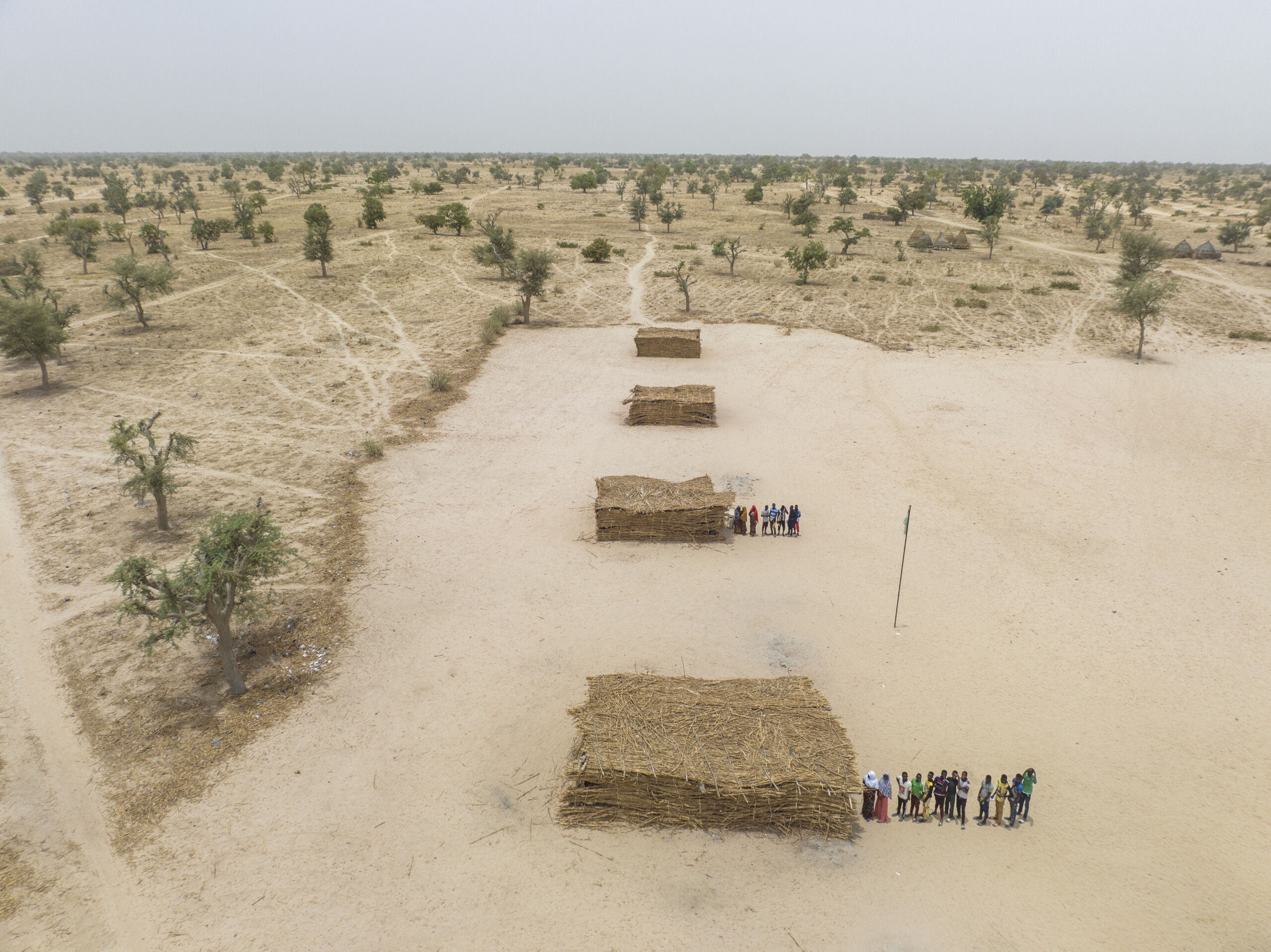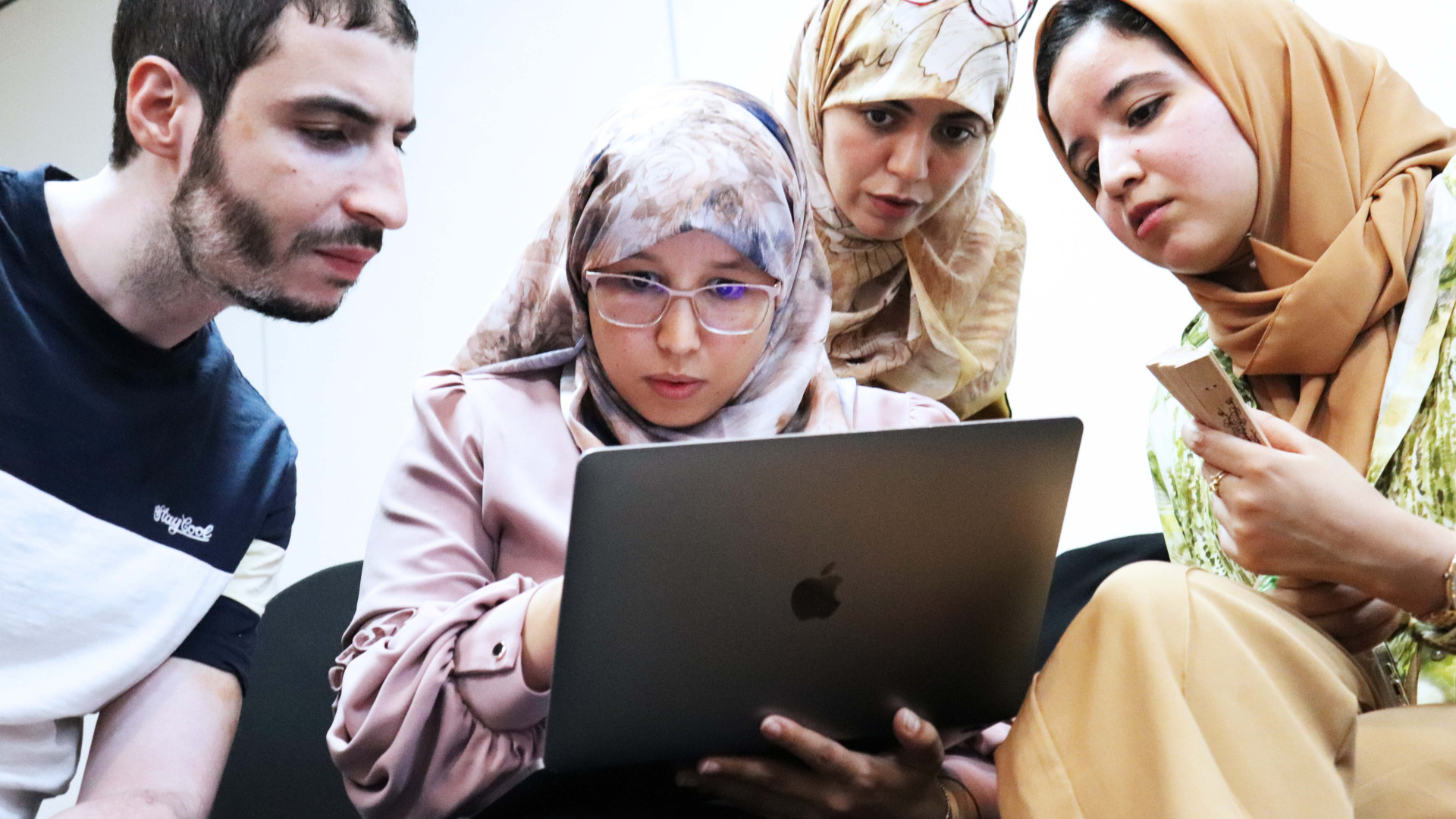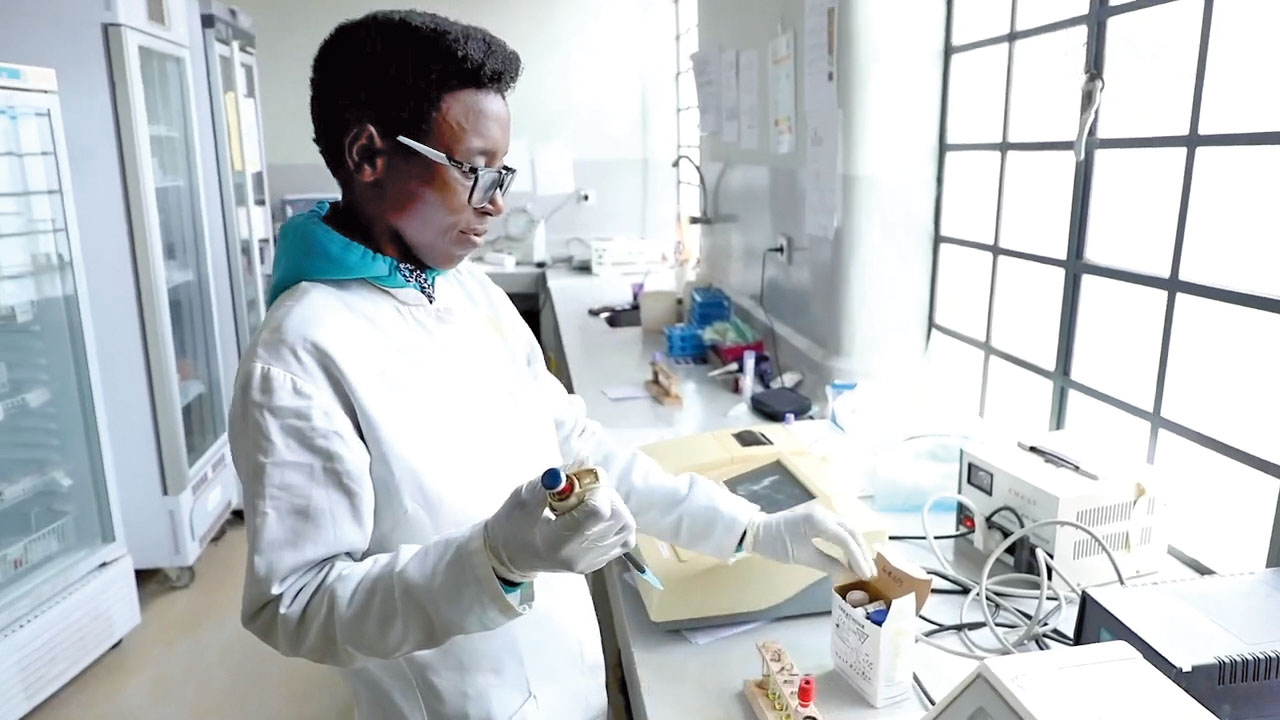What is a budget analyst looking for in the healthcare sector?

This is the story of Jesse in Maputo, as Junior Expert in Budget Analysis for Public Financial Management as part of Enabel’s contribution to Health System Strengthening in Mozambique.
Although financial analysts are sought-after in international development cooperation, finding suitable candidates is very difficult. Nevertheless, the Junior Programme managed to recruit Jesse Waterschoot, a 26-year-old budget analyst. Jesse was the very first budget analyst ever to be recruited as a Junior Expert. In Maputo he was to carry out financial analyses and train Ministry of Health staff in the use of financial data so that they could carry out the analyses themselves.
In February 2020, Jesse went to Maputo and joined the Public Financial Management project team within the Ministry of Health. The project, Public Finance Management for Service Delivery (PFM4SD), implemented by Enabel, aimed to improve access to health care. To do so, the project conducted budget analyses and informed the Ministry of Health and its partners about sound public finance management. The aim of the project was to promote the use of data in the decision-making process.
“I’m so pleased that I took up this challenge. It took me a while to settle into the job, because I had to get to know the context, the language and the project. Month after month, with the support of the project team, I soon saw the impact of my work and the training I had given. Today, the Ministry’s staff have access to and are familiar with simple and effective analysis tools.”
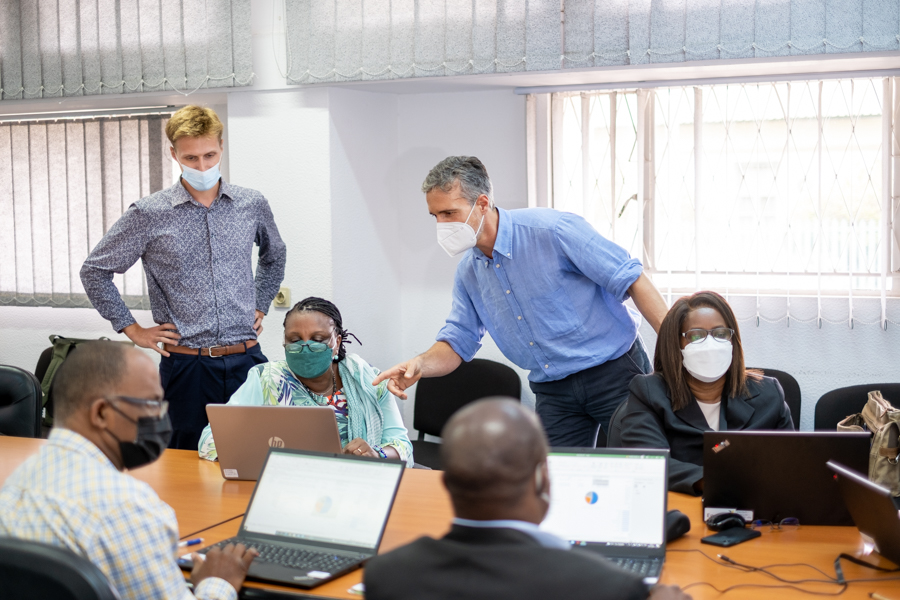
and analysis of data with excel from Damiano Stella, Socio-Economic Policy Advisor, Enabel assisted by
Jesse Waterschoot, Junior Expert Budget Analysis, Enabel. – Ministry of health, Maputo, Mozambique
What was Jesse’s academic background?
Jesse studied political science and international politics. After an internship abroad, he decided to gain professional experience abroad. Yet, his first job was one in Brussels at the Belgian National Institute for Health and Disability Insurance.
Soon, as he found out about the Junior Programme at a JodDay at the University of Ghent, he considers this inspiring professional career opportunity: contribute to a development project in a partner country with the necessary supervision and support. He applied for the job and could embark on a new adventure.
What does a Junior Expert job in Financial Analysis involve?
During his 2-year term, Jesse carried out financial analyses and helped create tools to facilitate the data analysis work of the Ministry of Health’s staff. Jesse was responsible for managing and analysing the health sector budget. He compiled the financial data into a dashboard1, which he then used to present clear and precise analyses to the department’s staff. He also developed a tool for easy analysis of audit reports. In future, such new tools are to be used by the Ministry itself.
Offering training on how to use the tools and demonstrating the importance of using reliable financial data was the next step. With the help of his colleagues and with a view to building the capacity of the Ministry’s staff to use the tools, Jesse developed a specific training programme in data analysis. He taught the courses himself.
In addition to training, follow-up sessions and specific workshops were scheduled to ensure that the new skills acquired are put to good use in the day-to-day work of staff.
Jesse’s latest achievement: He introduced the digitisation of financial and audit reports and turned them into risk measurement tools.
“What gave me the most satisfaction in my job was providing training to the Ministry’s staff. With the project team, we wanted to demonstrate two things: The usefulness of being well trained and the importance of good data management and analysis.”
How did his adventure in Maputo begin?
When he first took up his new role, Jesse needed time to settle into the job: He knew neither the context of the healthcare sector nor the project. Fortunately, he could count on the goodwill, advice and support of his colleagues.
The working language in Mozambique is Portuguese; Jesse had to learn Portuguese and improve it on a daily basis.
Working for the Ministry of Health was in no way comparable to the organisations Jesse had already worked with in Belgium. He had to take the time to understand the context and know how best to support the department. As soon as he was able to find his feet, contact with the Ministry’s staff gradually became easier and a relationship of trust was established.
“To develop the tools, I absolutely needed their help: I had the technical know-how, but they had to provide input to define the content of the tools and the type of analyses that would be useful to them.”
The preparation of the training courses did not sufficiently take into account the differences in technical skills and tools that the staff had. We had been preparing these sessions for a long time. We wanted to ensure that they would be used and demonstrate the usefulness of data analysis. The training sessions provided a link between technical skills and the participants’ day-to-day work. We were able to show Ministry staff how to use simple techniques to make their work easier and more efficient.
What Jesse remembers about preparing training modules and tools is that it is essential to know what the needs are and who the target audience is. This applies to development cooperation, but also to other contexts.
It is precisely because he and the project team developed these courses specifically for the Ministry of Health that they have been so positively received. The tools were also co-built, which facilitated their integration.
“Personally, I really enjoyed doing this, because you already know the context well and you’re a great help. I saw the impact of the training I gave in the short term, which meant for me that it was clear and necessary.”
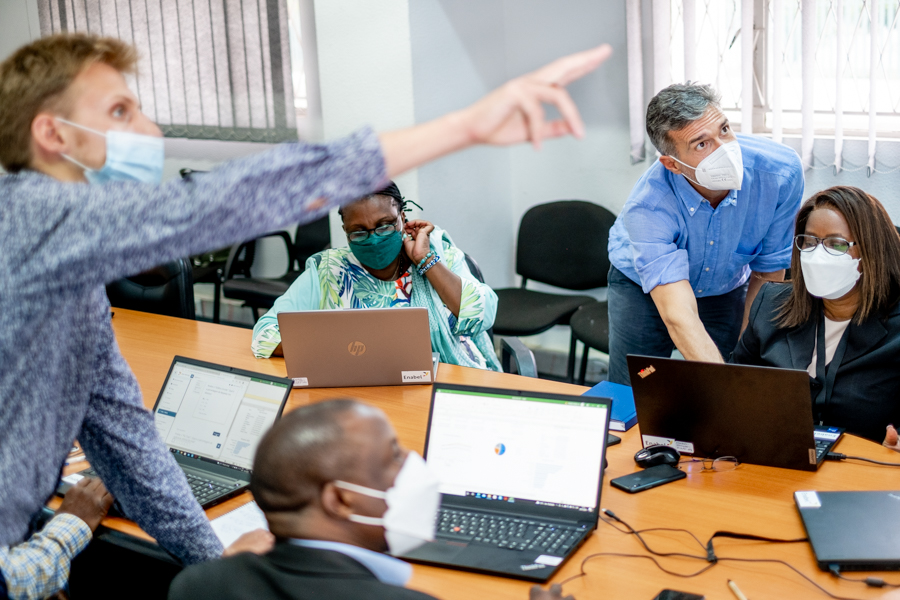
and analysis of data with excel from Damiano Stella, Socio-Economic Policy Advisor,
Enabel assisted by Jesse Waterschoot, Junior Expert Budget Analysis, Enabel. – Ministry of health, Maputo, Mozambique
How would you sum up your experience as a Junior Expert in Maputo?
Jesse’s two years as a Junior Expert have now come to an end, but he looks back on them very positively and is immensely satisfied to have taken up the challenge.
“I’m particularly proud of having succeeded in developing the audit tool, which is now used by the Ministry, and of having trained the staff. In addition to training, I have often been asked by the Ministry to provide specific courses.”
Jesse very much appreciated capacity building within the Ministry, because the impact is immediate, and it brings clear added value to people’s work. That’s why he is looking for a future job in the field of capacity development and digitisation. On the technical side, its data analysis skills are now very solid.
What happens next in his career after the Junior Programme?
Jesse thoroughly enjoyed his time in Mozambique and would love to experience another adventure abroad. But an interesting job here in Belgium would also appeal to him.
On his return to Belgium, he worked for 9 months for Trias as Monitoring & Evaluation and Data Management Manager.
Then, in early 2023, he was recruited by GIZ (Deutsche Gesellschaft für Internationale Zusammenarbeit), the German agency for international development cooperation, to work in Dakar. He works as a technical assistant with Senegal’s Ministry of Labour, helping the social protection department to extend coverage to the informal sector. He provides mutual associations with his expertise in monitoring and evaluation.
You can follow Jesse’s career on Linkedin.
1 A dashboard is the English translation of the French word “tableau de bord”. It is a visual representation of important information on a single screen. It is used to measure the performance of a company or a development project with a view to achieving one or more objectives. The dashboard is a table that brings together different data for in-depth analysis. A dashboard is widely used in digital marketing, for example, to analyse website traffic.
